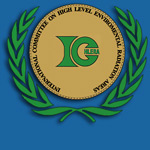Orateurs
Description
Neutron detection is still a challenge. In fundamental research the detection of fast neutrons is mainly based on organic liquid scintillators which offer a good neutron- discrimination. This technology which is now more than 50 years old presents main drawbacks as these materials are toxic, corrosive, flammable, explosive, carcinogenic and dangerous for the environment. They will no longer be usable even at research facilities. Concerning slow neutrons, the shortage of 3He all over the world leads industrials to find alternative solutions for the 3He based detectors mainly used. An innovative technology in the detection field is under development in the frame of an interdisciplinary collaboration. It is based on ionic organic compounds which offer the possibility to detect both slow and fast neutrons with the same material. The advantages of these new solid scintillators and their possible applications will be presented.

